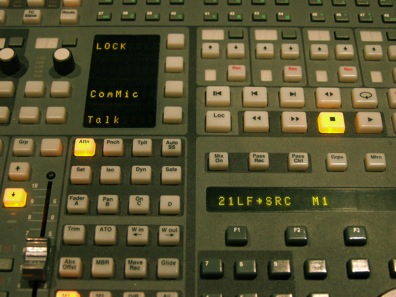
Euphonix Console
There was a time when mastering was a back-room affair. It was a thankless job and rarely credited. Heck, even the engineer and producer were rarely credited. So how did mastering become the coveted, high profile position we revere today?
The answer: digital audio. You see, before the availability of cheap digital gear, music recording was a costly proposition that needed very expensive gear. There were fewer studios around and the best engineers filled the top positions (usually). These were real pros with apprentice-learned skills.
Today, in a digital world, studio gear is cheap and readily available. Studios are everywhere. (see my blog on “What is a Studio”) And talent? Well, without the filter of extreme competition for a few available positions, anyone with a couple of thousand dollars can get a DAW up and running. Couple this proliferation with the current trend of “Lo-Fi” sounds and production techniques and now you need a serious technician to make something listen-able out of these messes we call “final mixes”. I always find it amusing when reading an article about the production of an album and the artist/engineer/producer talks about his radical production or mixing technique. I wish magazines would have a sidebar where the mastering engineer reveals the extreme measures it took just to make the mixes work. Of course it would be like getting your surgeon to say something bad about your family physician…it ain’t gonna happen. After all, it’s the reason mastering engineers are so busy these days and why some are approaching cult status. I’ve had bands in my studio on the first day of tracking debating who should master.
In the end this is a good thing I guess. Another set of ears and fresh perspective is always helpful. And in today’s world of hyper compressed releases the mastering engineer is the “keeper of the gate” so to speak and can transform the album to meet today’s release standards. I would say the biggest mistake of many people mixing modern records is the pressure to make each song loud at the mix stage. In trying to match the loudness of a mastered release (the CD of who the band wants to sound like!?), all the life and punch of a recording is forever gone. Mix the most open sounding, dynamic record you can and let the mastering engineer earn his pay.